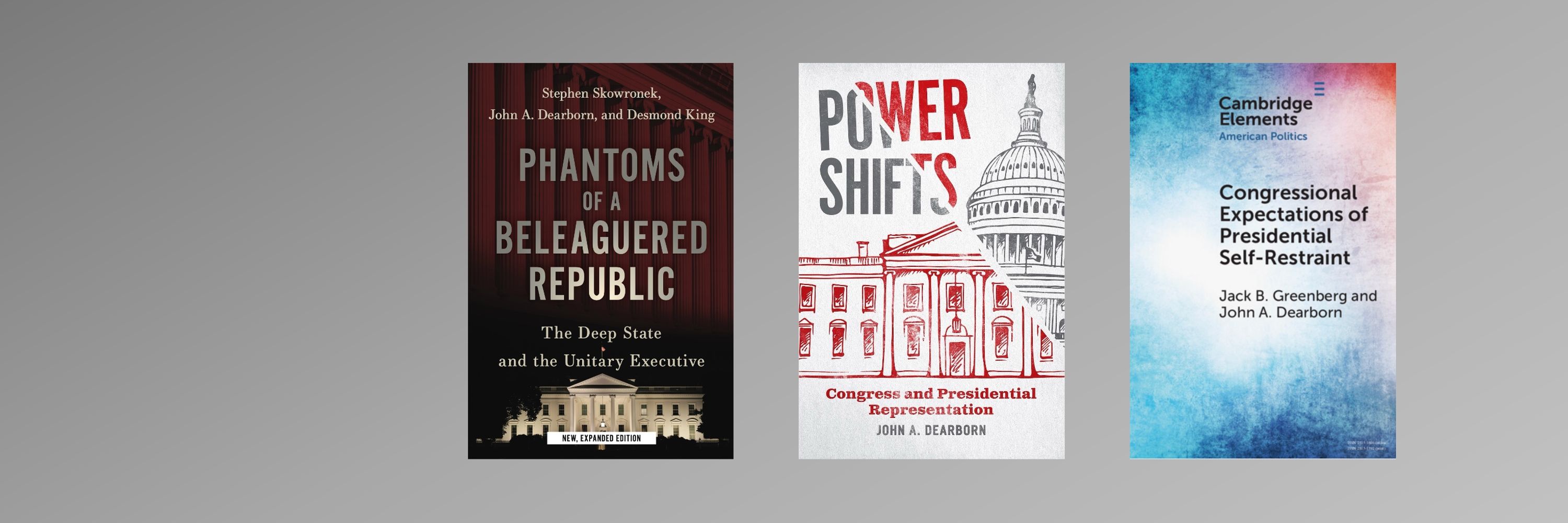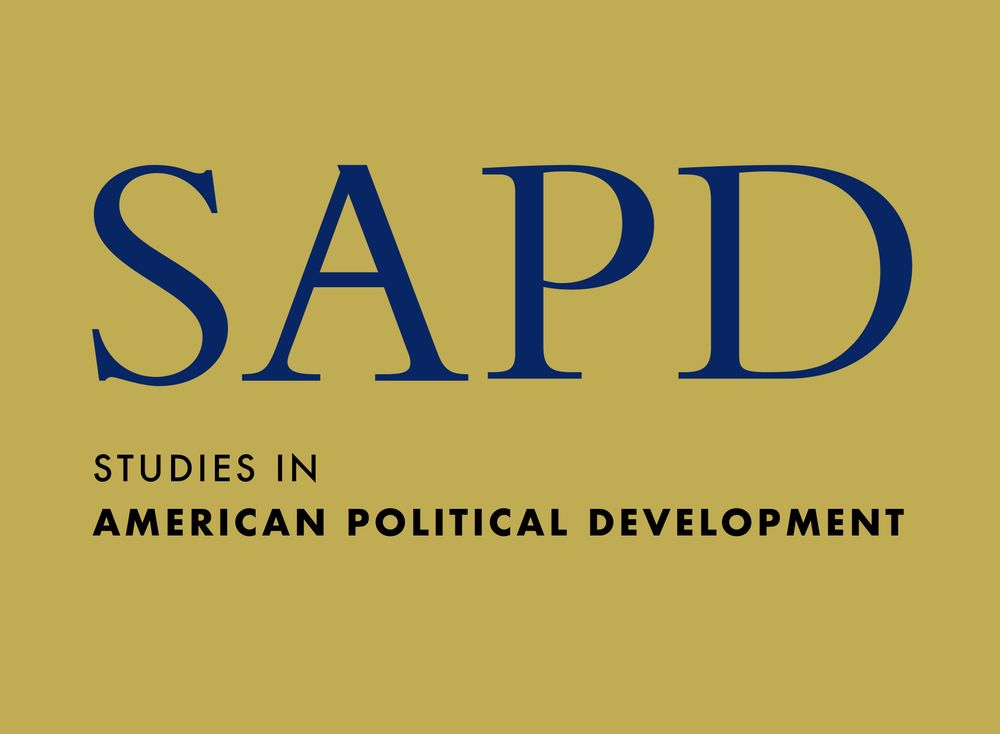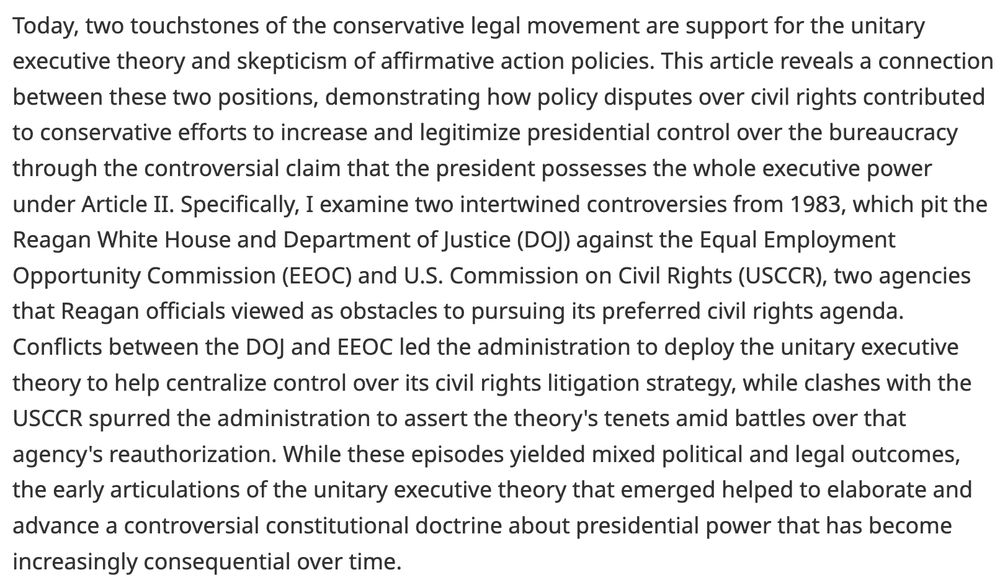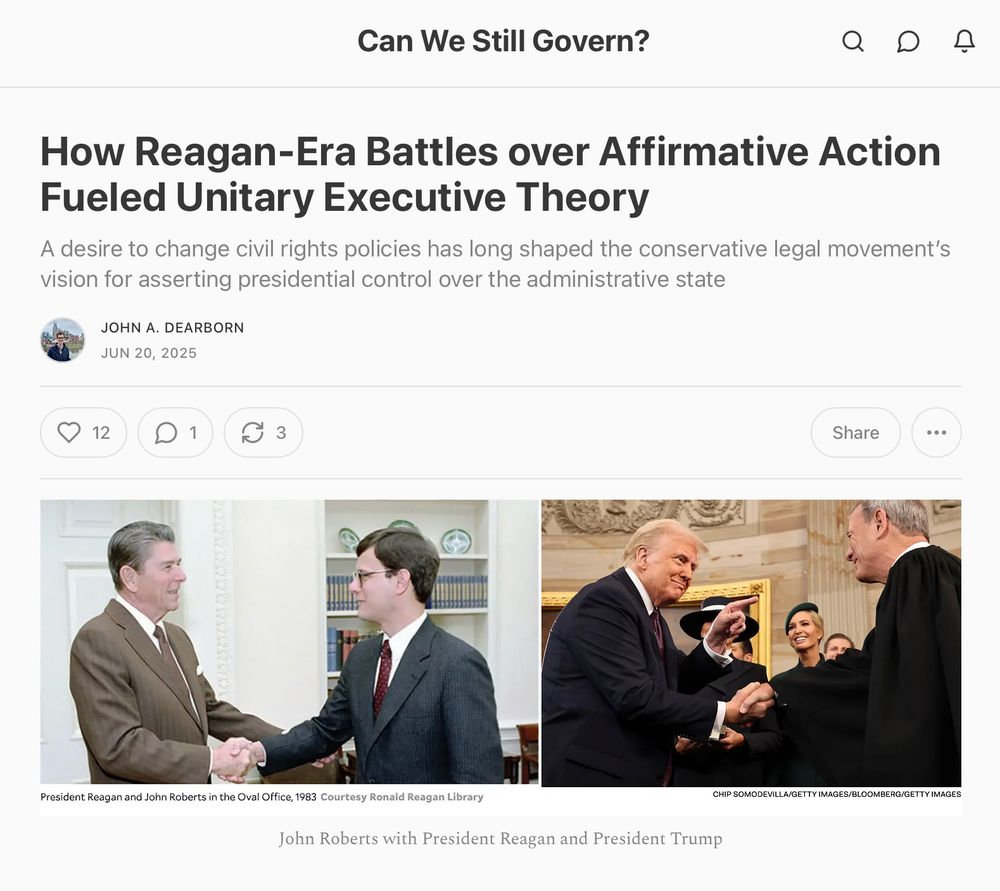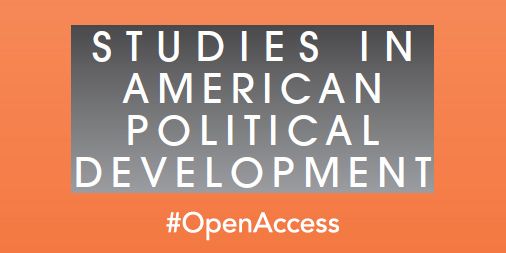John Dearborn
@johnadearborn.bsky.social
3K followers
440 following
33 posts
@VandyPoliSci Assistant Professor. Research: Presidency, Congress, American Political Development. @Yale PhD & proud @UConn alum. http://johnadearborn.com
Posts
Media
Videos
Starter Packs
Reposted by John Dearborn
Reposted by John Dearborn
Reposted by John Dearborn
Reposted by John Dearborn
John Dearborn
@johnadearborn.bsky.social
· Jun 20
Reposted by John Dearborn
Beau Baumann 🍏
@beaubaumann.bsky.social
· Jun 20
Contesting the Reach of the Rights Revolution: The Reagan Administration and the Unitary Executive | Studies in American Political Development | Cambridge Core
Contesting the Reach of the Rights Revolution: The Reagan Administration and the Unitary Executive
www.cambridge.org
Reposted by John Dearborn
Don Moynihan
@donmoyn.bsky.social
· Jun 20

How Reagan-Era Battles over Affirmative Action Fueled Unitary Executive Theory
A desire to change civil rights policies has long shaped the conservative legal movement’s vision for asserting presidential control over the administrative state
open.substack.com
Reposted by John Dearborn
Reposted by John Dearborn
